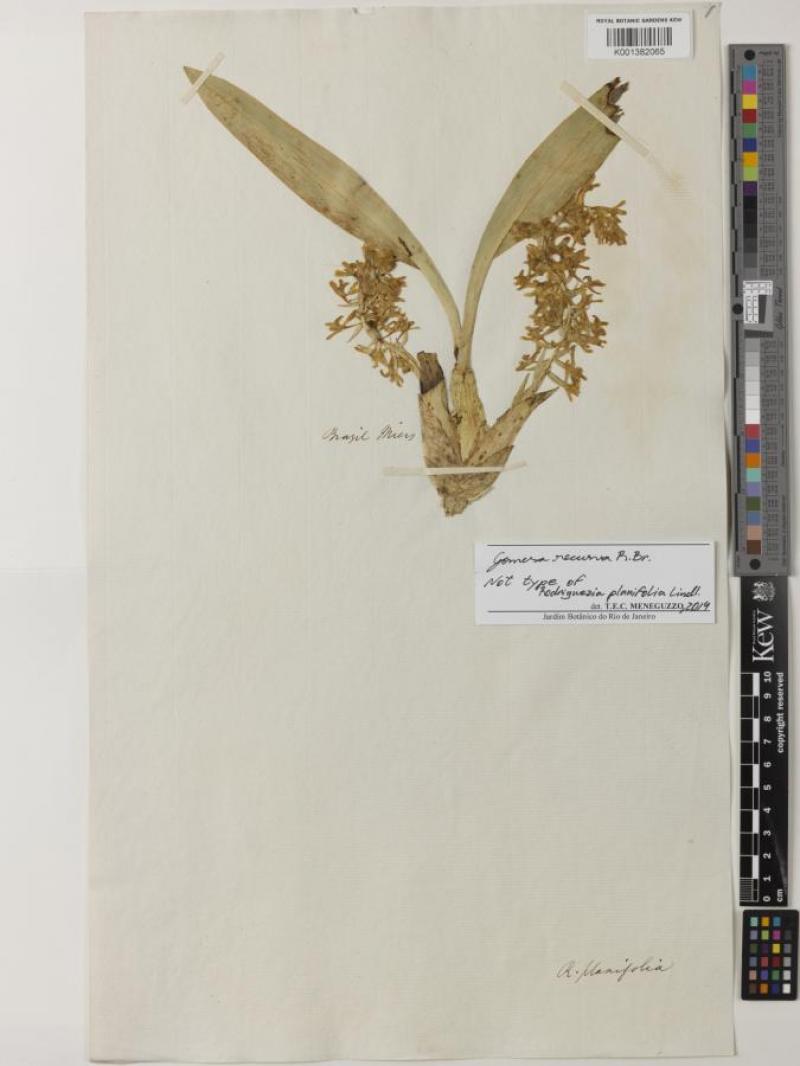Gomesa recurva
Also known as: The Bent Gomesa or Epidendrum inflexum Odontoglossum recurvum Gomesa densiflora in the subfamily: Epidendroideae
Native to: Brazil
General Information
The Bent Gomesa is a medium sized sympodial cool to warm growing epiphytic orchid belonging to the sub family Epidendroideae native to Brazil.
Plant Description
Sympodial. Grows to 19-37cm. Each new growth has numerous erect lance shaped, oblong shaped leaves that grow to 3-30cm long. Pseudobulbs grow to 2-7.5cm
Flowers
Numerous fragrant blossoms appear during Summer and Spring
Fragrance
The orchid is fragrant.
Blooming Season
- Spring
- Summer
Substrate(s)
- Coarse
Care Notes
These orchids like to be watered regulary, especially during warm weather, and prefer a well draining mix or also do well mounted, provided they can be watered daily or even many times a day.
These are quite a forgiving orchid, there are no special requirements to get this orchid to flower, just good care and consistent conditions. Larger plants may be more fussy and can react poorly to change; a poorly timed repotting, a pest infection or an unusually hot day can set them back for a couple of years. However, even plants that have been treated poorly can thrive, and if they are set back they often recover much stronger then they would otherwise be.
Fragrant:- IsFragrant
Climate
Grows at low to high elevations. Rainfall ranges from 28mm to 201mm per day, heaviest in June and lightest in February. Humidity ranges from 80% to 84%, highest in September and lowest in January. Temperature ranges from 8C to 24C, highest in July (15C to 24C) and lowest in January (8C to 19C).
Watering
These orchids prefer a wet-dry cycle between waterings, they should be watered frequently but only when the moisture is approaching dryness, where the pot feels light and/or the media looks dry. Keep an eye on mounted orchids in warm weather as they may dehydrate quickly.
Fertiliser
These plants do well with slow release fertiliser at the rate of 2-3 pellets per cup (250ml) of media. Additional fertiliser during the growth period may be beneficial, but not necessary.
Potting
These plants are quite forgiving and will do well repotted ever 2-3 years. The mix should be coarse, well draining, and allow space for air to move and for roots to grow.
Alternatively, these plants will also do well mounted to tree fern or cork slabs, or mounted to trees.
Best time for repotting or mounting the orchids is the end of winter when new growths start to appear. Avoid repotting during hot weather,
Repotting is best done annually.







